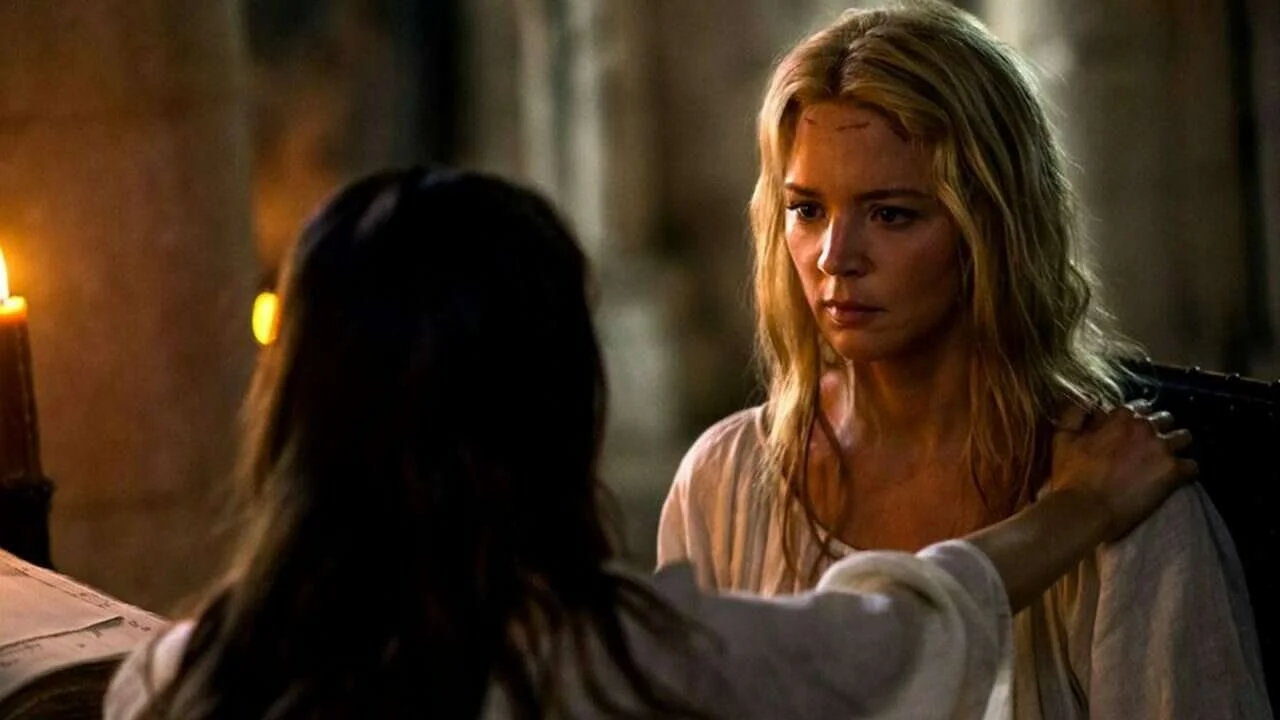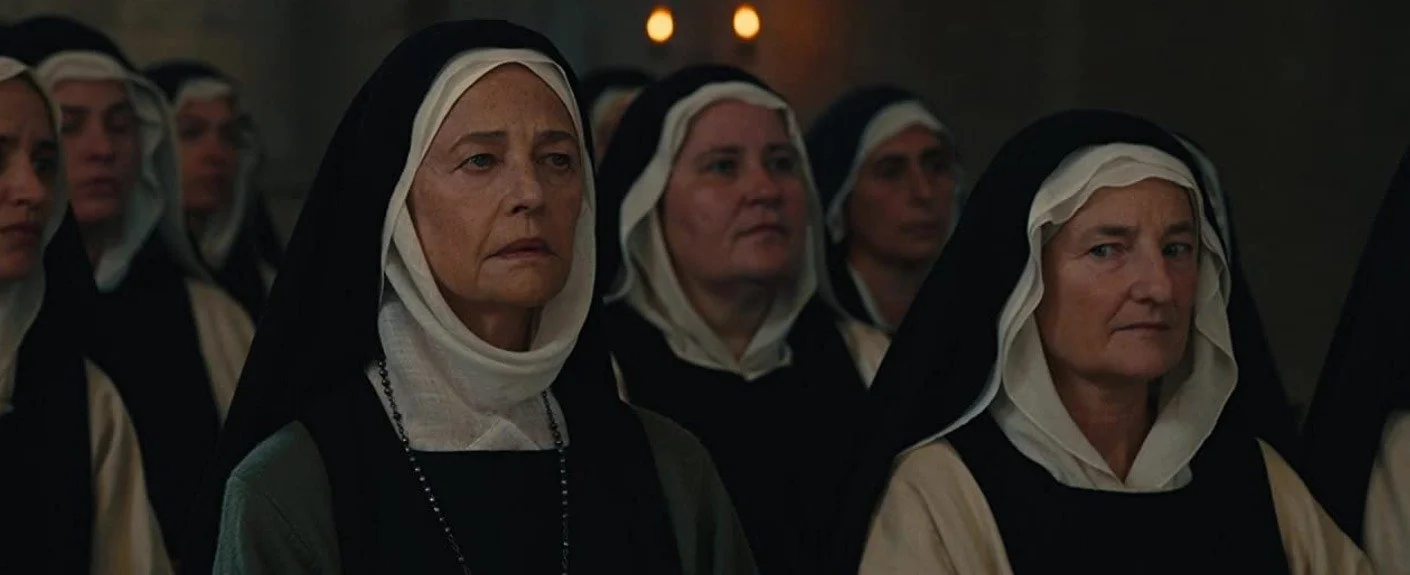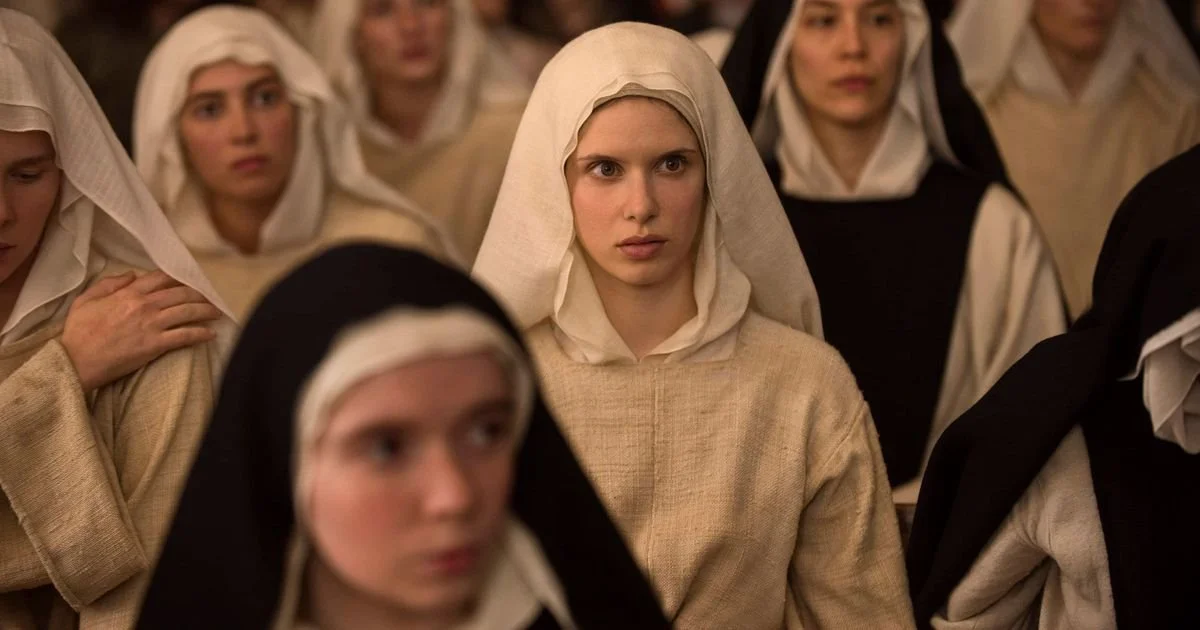Benedetta Review
9.5/10
There are few viewing experiences more satisfying than when a filmmaker swings for the fences. They do not always score a homerun, often they peg someone in the face and piss off the crowd. But at least they have made an impact and sparked a reaction. I first became aware of Paul Verhoeven’s work when I watched Starship Troopers as a kid. Back then I was too young to be aware of any satirical elements in the film and it terrified me. Years later, it became one of my favorite films for its razor-sharp skewing of the military-industrial complex. That and the giant bugs.
Some of his films like Starship Troopers and Showgirls have undergone critical reassessment over the years. Many people did not realize they were satirical. Showgirls was called one of the worst films ever made, but now it is a camp cult classic. You would think it would be easy for people to comprehend the comedic tones of these films considering he made Robocop. It’s not like those films were especially subtle with their sardonic prodding. For years Verhoeven has been associated simultaneously with campy schlock and arthouse fare.
That is an unfair dismissal of his talent. His films have dark comedy interwoven in the storytelling, but never in a way that diminishes their dramatic potency. For me, this kaleidoscope of tones is integral to what makes his films fantastic. They are cognizant metamorphizing creatures. There are going to be instances where you are unsure about the idiosyncratic direction his films take. That is essential to their appeal. Do not overthink it, just sit back and ride the waves to whichever strange destination he may take you.
Benedetta exemplifies these ideas in every sense. If it were made by most other filmmakers in Hollywood the outcome would still be enjoyable, but it would lack his ability to confound and captivate. It starts with a young girl, Benedetta, in the 17th century being taken to an Italian convent by her parents. Right from the beginning, the film establishes hints of her spiritual connections. She believes the Virgin Mary listens to her and does whatever she asks. Setting this up early on is key to her character. Is her faith is a genuine belief or brilliant manipulation?
The film jumps forward 18 years and wastes no time showing her first vision of Jesus. He refers to Benedetta as his wife and beckons to her. This glimpse of the divine feels utterly tangible to her. Throughout the story, we are never told otherwise. Verhoeven never judges the validity of what she sees. He just portrays it and lets the viewer decide. I did not grow up with religion, and I have always had a disconnect with the concept. I am not averse to anybody having beliefs if it makes them happy and they don’t hurt anyone, but I’ve never been able to engage with belonging to any particular faith. I do have a fascination with how people’s spiritual views shape who they are. Despite my distance from religion, much of my favorite art is influenced by it. Ken Russell’s The Devils, for example, a film I will write a separate article about, is one that I have adored for years, even though I cannot relate to the grand ideas in it.
Benedetta does not rise to those lofty heights, but it is a remarkable film in its own right. It does share one similarity in theme. Both films deal with an individual’s faith clashing with the institution of religion that dominates. Soon after her vision, a new face, Bartolomea, bursts into the convent. She is being chased by her abusive father who hurls brutal insults at her in front of Mother Superior and the other nuns. She tries to join the convent to escape her father but is rejected at first when Mother Superior tells her the convent is not a charity. In the end, Benedetta’s parents pay for Bartolomea to stay there.
Charlotte Rampling is wonderful as the Abbess. She treats the convent like a business and earlier in the film she expects Benedetta’s parents to pay a hefty dowry before their daughter is allowed to serve God. There is a wry slyness to her portrayal where it is clear she does not completely buy into Benedetta’s visions. There is an immediate spark between Bartolomea and Benedetta. This forms the central dynamic in the film. Their relationship deepens and becomes more charged as Benedetta’s visions of Jesus become more sexual. These vivid sights of Jesus are completely outlandish and bizarre. One, in particular, was so over the top and weird, it made me laugh out loud.
There is a misconception among the snobbish that comedy derails drama. It certainly can if overused. There are far too many blockbuster films that constantly undercut tension with goofy quips. This can work well in moderation if the jokes are funny, but too often they do not allow a film to breathe. Verhoeven does not lose track of Benedetta’s heart. There are ridiculous moments that are used sparingly without feeling tiresome. I never thought I would witness a romance between two nuns blossom as they both make vigorous use of communal side-by-side toilets. It sounds scatological and crass, and some may view it that way. I however saw the heartfelt joy in these moments.
The film shifts into high gear when Benedetta’s visions are perceived as evidence of her link to the divine. She is worshiped as a saint by many and a charlatan by others. These visions could be hallucinations brought on by a fractured mind. Virginie Efira captures the essence of this tortured woman. It is one of my favorite performances of the year. Daphne Patakia is fantastic as Bartolomea. Her character has dealt with levels of trauma beyond what most can comprehend and Patakia conveys that with intense conviction.
It is magnificent seeing how Verhoeven can still be just as provocative now as in his younger years. I cannot see anybody else in Hollywood tackling a story like this with his magical combination of preposterous pathos without ever being farcical. If the whole film were a series of winks to the audience it would fall flat, but he creates a rich tapestry of emotions that give him a narrative playground to express themes of faith and repressed sexuality.
Is Benedetta’s newfound lust linked to these manifestations of Jesus she claims to see? Is she going through a mental breakdown due to years of not acting on her urges? The level of guilt she goes through for allowing herself to feel this way is tearing her up inside. Having this relationship with Bartolomea was a way to vent these suppressed yearnings, but she still has to do it all in secret. She may see herself as being a shameful and immoral person marinading in guilt no matter how many times she is with Bartolomea. The film offers multiple possibilities. It is up to you how they are interpreted.









